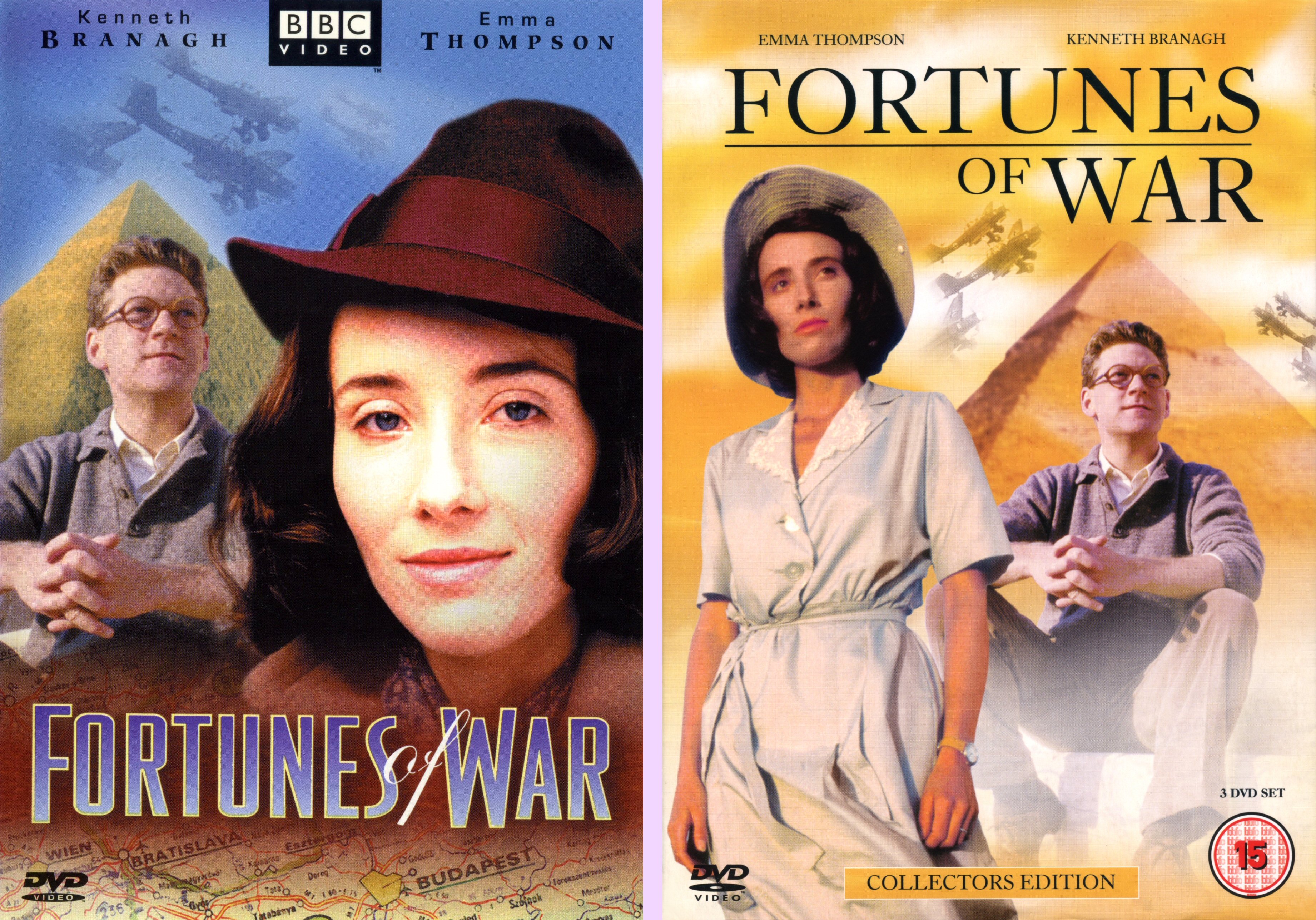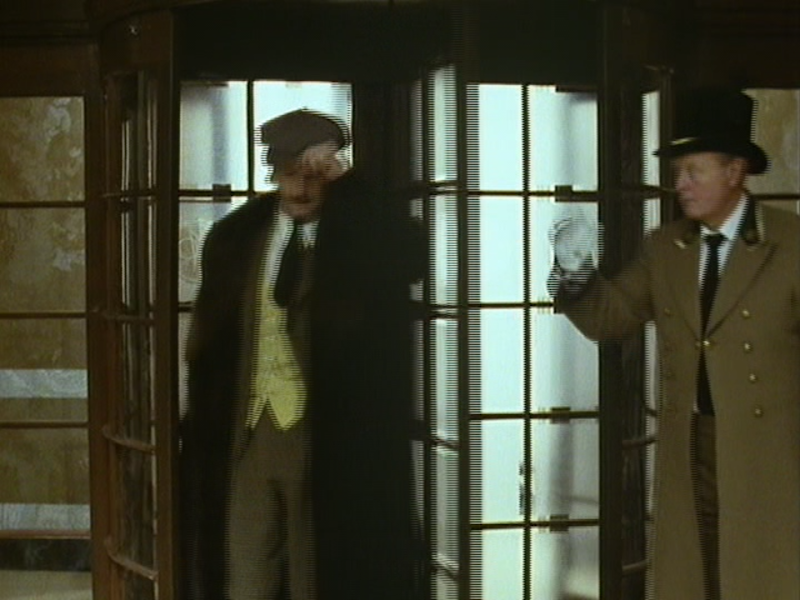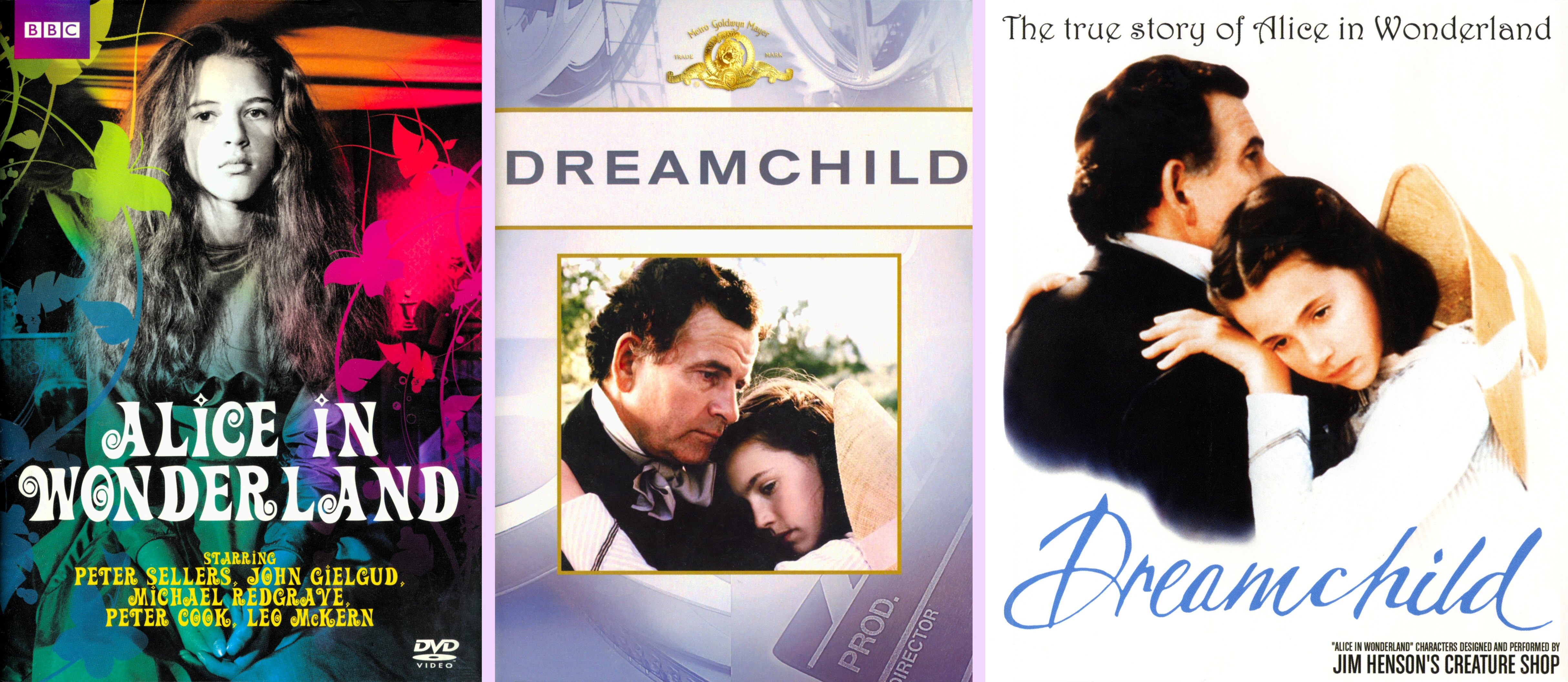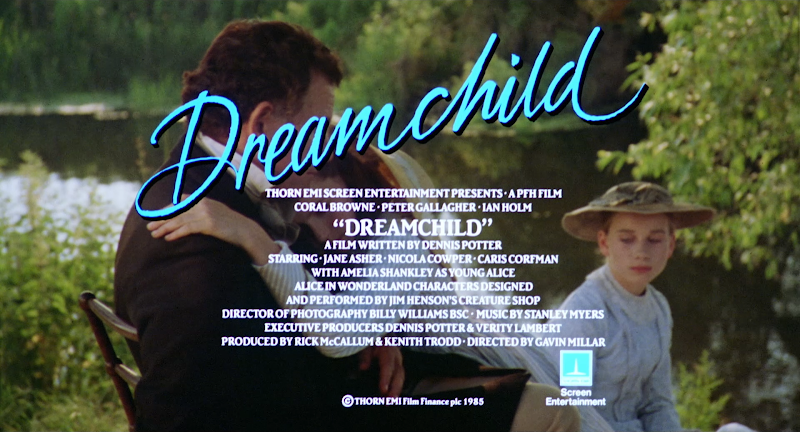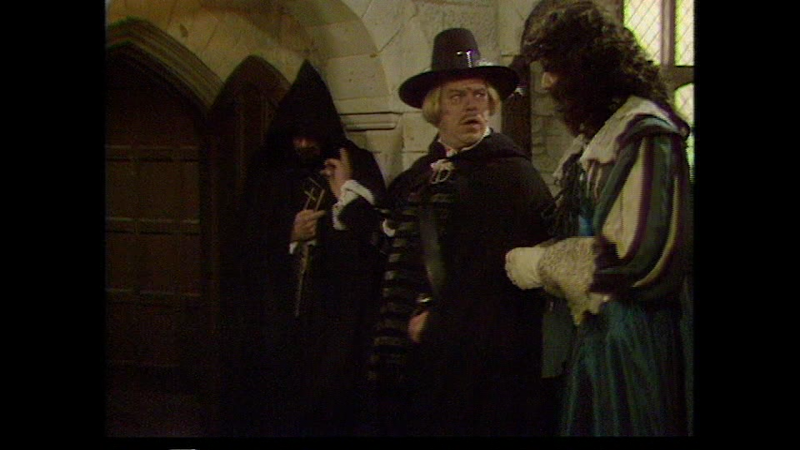The original Brimstone & Treacle is Dennis Potter's 1976 Play for Today that was banned and went unseen until 1987 (ironically making the remake the version people got to see first). Michael Kitchen (Dracula AD, Mrs. Dalloway) plays a grifter who cons his way into the household of Denholm Elliot (Raiders Of the Lost Ark, Blade On the Feather), where he and his wife care for their invalid daughter. Little do they suspect that the man they've invited in is the literal devil and their daughter being completely cognitively impaired doesn't deter his designs on her. Yeah, the material's pretty edgy and you can see why the BBC would've taken issue with it. But it's also some of Potter's sharpest writing and wonderfully acted.
Ultimately, I would say the remake is not pointless, but it should be primarily of interest to those who already have the original. It's definitely interesting to see the what sporadic, sometimes seemingly arbitrary, changes they decided to make while otherwise sticking line for line, beat for beat to the original. Some of those changes may've been landed upon casually during the filming, but others required some definite intent in the planning stages. And all the little "whys?" can be a fascinating puzzle. For the most part, they weaken the story being told. One or two changes really undercut the story's inherent power. Unfortunately, it would be a spoiler to lay into the biggest ones, but a couple smaller, but still weakening alterations include taking out the entire political subtext re: The National Front, and swapping it for some silly business about working for a religious greeting card company, or changing the nature of the father's tryst, which makes it more PC but far less dark and shameful, to the point where you'd wonder why anybody but his wife would be traumatized by it.
But then, since most of it is so similar - right down to the recasting of Elliot in the same role - anyone familiar enough with the first version can easily take all that as written and just enjoy what they get right the second time around, appreciating what the original would've looked like had it been shot on 35mm. There's one additional line of dialogue I quite like. But I'd hate to think of people approaching Brimstone & Treacle story from the 1982 end. It would've been a shame even beforehand, but it's especially so since the ban on the original was lifted in 1987, and it was released on DVD by 2 Entertain in 2004.
 |
| 2004 2 Entertain DVD. |
The audio is the original mono track in Dolby Digital, and happily they have included optional English subtitles.
And more good news: it's not barebones! It's basically got one extra: a vintage half-hour made-for-BBC program called Did You See? that aired when BBC lifted their ban and aired Brimstone in the 80s. At first, it looks a bit doofy: a panel discussion with three finger waggers about whether the show should be seen. But they actually have a reasonably and surprisingly smart discussion on the matter, and far better still, the program also includes separate interviews with key players including Potter himself, the producer, a journalist from The Guardian and the head of BBC programming, and those - -especially Potter - are invaluable.
And that takes us to the remake, which was released on DVD in the UK by Prism in 1999 and here in the US by MGM in 2003. Both are barebones and, as I mentioned at the top, non-anamorphic. So this new special edition 4k restoration on a BD/ UHD combo-pack from Vinegar Syndrome is pretty essential, at least for anyone who considers this film to be essential at all (although it should be noted a 2009 anamorphic DVD was released in the UK in the interim).
 |
| 2003 MGM DVD top; 3035 VS BD mid; 2025 VS UHD bottom. |
MGM gives us the original Dolby stereo track, with its fancy Police soundtrack, and optional English, French and Spanish subtitles. VS bumps that up to DTS-HD and keeps the English subs, while dropping the foreign language options.
And they did not skimp on the extras either! First and foremost is a partial audio commentary by Sting and director Richard Loncraine (Richard III, The Haunting of Julia). It sounds like they recorded a traditional commentary, but they left a lot of dead air, so VS just trimmed it down to a tight, involved talk that runs about half as long. It was absolutely the right decision; it's a don't miss track. Then there's an additional on-camera interview with Loncraine (a bit redundant), a good one with the production designer, and a featurette with two experts who are okay, but repeat a lot of information from the Did You See? program nearly word for word, and generally just feel like a couple of guys with a passing interest in Potter who looked some stuff up online before recording. In other words, it's a decent explainer for newcomers, but fans won't learn much. Both this and the MGM disc also have the trailer. But only VS's edition includes a 16-page booklet with notes by Alexandra Heller-Nicholas. It also has reversible cover art, and if you ordered the limited edition, an exclusive slipcover.
Conclusion: Vinegar Syndrome has given the remake a brilliant edition I'm not at all sure it warrants, but it makes me happy. Again, how could I pass up that commentary track? But for anybody reading this who's not already in the paint for this movie, I cannot stress enough how much more I recommend the 2 Entertain of the original Brimstone & Treacle instead.














